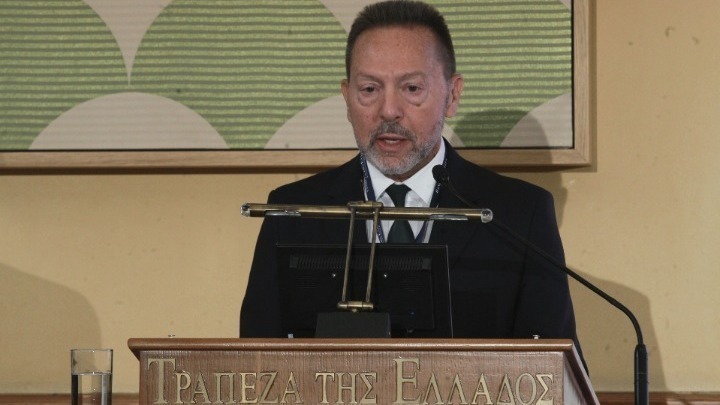Despite the challenges, the Bank of Greece (BoG) has maintained its forecast for the Greek economy's growth rate in 2025 at 2.3%, a performance well above the average of the Eurozone.
However, as noted in the Bank’s Annual Report, quantifying the impacts of a trade war is an extremely complex process, as it depends on factors such as the duration and intensity of the measures and countermeasures, the countries involved, and the ability of economies to adapt to new conditions.
As BoG Governor Giannis Stournaras stated in his speech, Greece, despite its limited dependence on the United States, is expected to have only a small direct impact from the increase in tariffs. However, the country may experience indirect effects, as a global trade slowdown could reduce demand for Greek goods and services, limiting growth prospects. Additionally, increased uncertainty in the markets discourages investments, as businesses are reluctant to take risks in an unstable environment.
"In response to these challenges, Greece must continue its reliable fiscal policy, attract investments, and implement reforms aimed at enhancing productivity, promoting innovation, and shifting toward a more sustainable development model that relies on diversifying the production base and developing new high-value-added sectors," emphasized Governor Stournaras.
He stressed the need to continue reforms in order to boost investor confidence and attract new capital, warning of the risks posed by delays in the judicial system. He pointed out that, despite the progress made in recent years, "Greece's ranking compared to other European countries remains low, especially in terms of the rule of law, the speed of judicial processes, and the predictability of the application of laws. This underscores the need for ongoing reforms to strengthen trust in institutions—a crucial element for economic stability and resilience in the face of future crises."
Sources of risk and uncertainty
Risks to the global economy in 2025 remain significant, adding to uncertainty about the outlook for growth and inflation. Rising trade protectionism – led by the US tariff policies and the announced countermeasures by major trading partners – are the main sources of uncertainty. The recent escalation of the trade war by the United States, with the announcement of tariffs on a wide range of countries, is expected to further disrupt supply chains. These developments threaten the resilience of economies, weighing on global trade and worsening global financial conditions and investment, while they increase the risk of renewed inflationary pressures and are likely to slow down economic growth.
In the euro area economy, downside risks remain significant. These risks include: the prolonged geopolitical tensions, which affect supply chains and create volatility in energy prices; the lagged impact of past monetary policy tightening, which could further constrain consumption and investment; fiscal consolidation in some Member States, which could dent demand; the US tariff policies and their potential adverse impact on European exports, particularly in critical industrial sectors; and long-standing structural weaknesses, such as low productivity, weak competitiveness and demographic challenges.
Diverging inflation and growth prospects across major economies add to the uncertainty and make the conduct of monetary policy more complex. A resurgence in inflation or inflation expectations could slow down or halt the process of monetary policy normalisation, thereby worsening financial conditions and weakening growth dynamics. On the other hand, a prolonged restrictive monetary policy stance exerts pressure on vulnerable sectors of the economy. At the same time, geopolitical tensions, market volatility and rising euro area bond yields lead to even tighter financing conditions. Moreover, a potential further decoupling of in monetary policies among major economies could cause turbulence in exchange rates and international capital flows. Against this background, global monetary policy cycles are expected to be less synchronised, as central banks need to balance inflation targets with the impact on energy costs and import prices from trade tensions and the imposition of new tariffs. In this increasingly complex environment, monetary policy needs to remain credible, which requires flexibility and readiness to adjust its stance in a timely manner, so as to ease uncertainty and safeguard macroeconomic stability.
For the Greek economy, maintaining strong growth rates and accelerating real convergence towards the EU average remain the key challenges. In addition to global and European risks, further sources of uncertainty relate to: potential delays in the absorption and effective use of RRF funds; the increasing frequency and severity of climate-related natural disasters; and growing tightness in the labour market and rising wage pressures.















